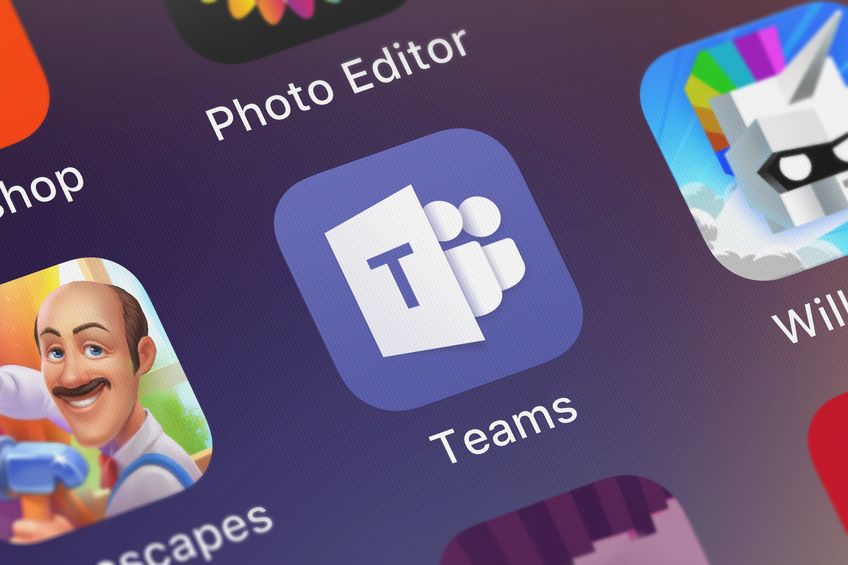by Anthony Koles, Business & Management Consulting Services
Over 20 Years of IT Consulting Experience
At Withum, we have over twenty years of experience using today’s ever-evolving technologies to help organizations rethink how work gets done. We build flexible and scalable systems equipped to accommodate multiple lines of business and support rapid growth. IT Modernization is imperative for companies looking to remain competitive by investing in cloud technology now, before the full effects of their growth cycle compounds into something unmanageable.
The intent of Withum’s IT consulting services is to develop a path to IT modernization that better serves an organization’s strategic business objectives and promote customer visibility and satisfaction. We will establish a Current State of technology, gain alignment on the desired Future State, and present a series of options in the form of a technology roadmap designed to increase productivity and efficiency. In addition to a technology roadmap, we will also help identify opportunities to both improve and streamline core business processes.
Developing the Customer Journey in 3 Phases:
During initial engagement conversations, Withum evaluates how to tailor our ‘customer journey’ approach to best suit your organization. In these introductory meetings, efficiency and growth targets are established, preliminary challenges are discussed, and current business systems that are adversely impacting operations are identified. From here, Withum customizes activities within a three-phased approach that includes a: Current State Assessment, Future State Definition, and Technology Roadmap.
Phase 1: Current State Assessment
In our Current State Assessment, we work with internal teams to review the current state of the company through collaborative workshops. The core areas we focus on include:
- Key business process and scenarios;
- System landscape and integration points;
- Current pain points and prioritization.
Withum also reviews the current system configuration through role shadowing, one on one interviews with key stakeholders and process owners, and review of critical business processes, controls, workflows, routings, approvals, organizational structure, key foundational data, reports, and dashboards.
Furthermore, we investigate and identify the causes for key pain points and bottlenecks within the current environment and provide a high-level Current State Summary that includes process and systems maps, as well as pain points outlined by process area. We also put together a list of enhancements and desired Future State functionalities, as well as establish guiding principles for future deployment options. From here, Withum will run additional workshops with the organization to review and accept the Current State Assessment Document and begin the Future State Definition phase.
Phase 2: Future State Definition
During this phase, Withum analyzes and develops a future state vision through subsequent workshops around the following (but not limited to) areas:
- Vision sessions outlining what is expected from the system;
- Determining the organization’s support structure in the short vs. long-term;
- Consideration of future initiatives, changes, and dependencies;
- Assessing organizational tolerance to change.
We also conduct online research to establish key processes and systems while considering both current and future initiatives and dependencies.
Addressing data management is also handled in this phase. This involves:
- Defining data and content needs and their behavior in the future state solution;
- Determining what data should be migrated from legacy systems into the new instance;
- Creating a data and content migration plan that includes information like, why it is required, how the data should move/integrate within future state systems, and what key reports and dashboards need to be designed.
Once the Future State Definition is validated, Withum will begin the final phase of the IT Modernization engagement — bridging the gaps identified in the Current State Assessment to the agreed upon Future State Definition in the form of a Technology Roadmap.
Phase 3: Technology Roadmap Development
In this phase, Withum works with the organization to develop a sequence of events that identify solution options and recommendations for:
- Key gaps and pain points;
- The sequencing of deployment activities based on prioritization;
- Time, effort, and cost estimates for the proposed solutions.
The final deliverable is a Technology Roadmap outlining key actions for immediate, medium, and long-term initiatives. Moreover, once documented, Withum conducts a workshop with stakeholders to review and finalize the roadmap. Learn more about the Technology Roadmap Phase here.
Timeline and Resourcing
How Long Does an IT Assessment Take?
Because Withum’s Customer Journey Approach is tailored to an organization’s individual needs, the timeline for an IT Modernization Assessment engagement can vary from 4 to 8 weeks depending on activity factors, such as (but not limited to) the following:
- Company size;
- The scope of the engagement;
- The number of workshops and interviews conducted;
- The complexity of data management.
Typically, there is a heavier lift during the Current State Assessment phase since our consultants completely immerse themselves in the “day of the life” of an organization’s employees. We aim to identify all challenges around day-to-day processes by documenting, investigating, and identifying causes for key pain points and bottlenecks within the current environment. Moreover, when analyzing the current environment, it is crucial that no gaps are overlooked. This ensures that both Withum and the client can adequately bridge those gaps when providing solution options and recommendations for the Future State.
What Resources Does Withum Provide?
From a resourcing standpoint, Withum will typically assign a relationship partner and an engagement partner to each client. The relationship partner is responsible for maintaining the overall client relationship and providing quality assurance. The engagement partner maintains the overall project relationship and is the point of escalation throughout the project. We also assign project leads, who are responsible for providing leadership and systems experience. They oversee the entire project team including; workstreams, deliverables, methods and standards of the project, and the delegation of work to functional consultants who provide application knowledge, support, and deliverable creation. Where needed, Withum will provide subject matter advisors to give expert advice on data analytics and specific technologies.
Is your organization ready for an IT Modernization? Contact us online today or give us a call at 240.406.9960


